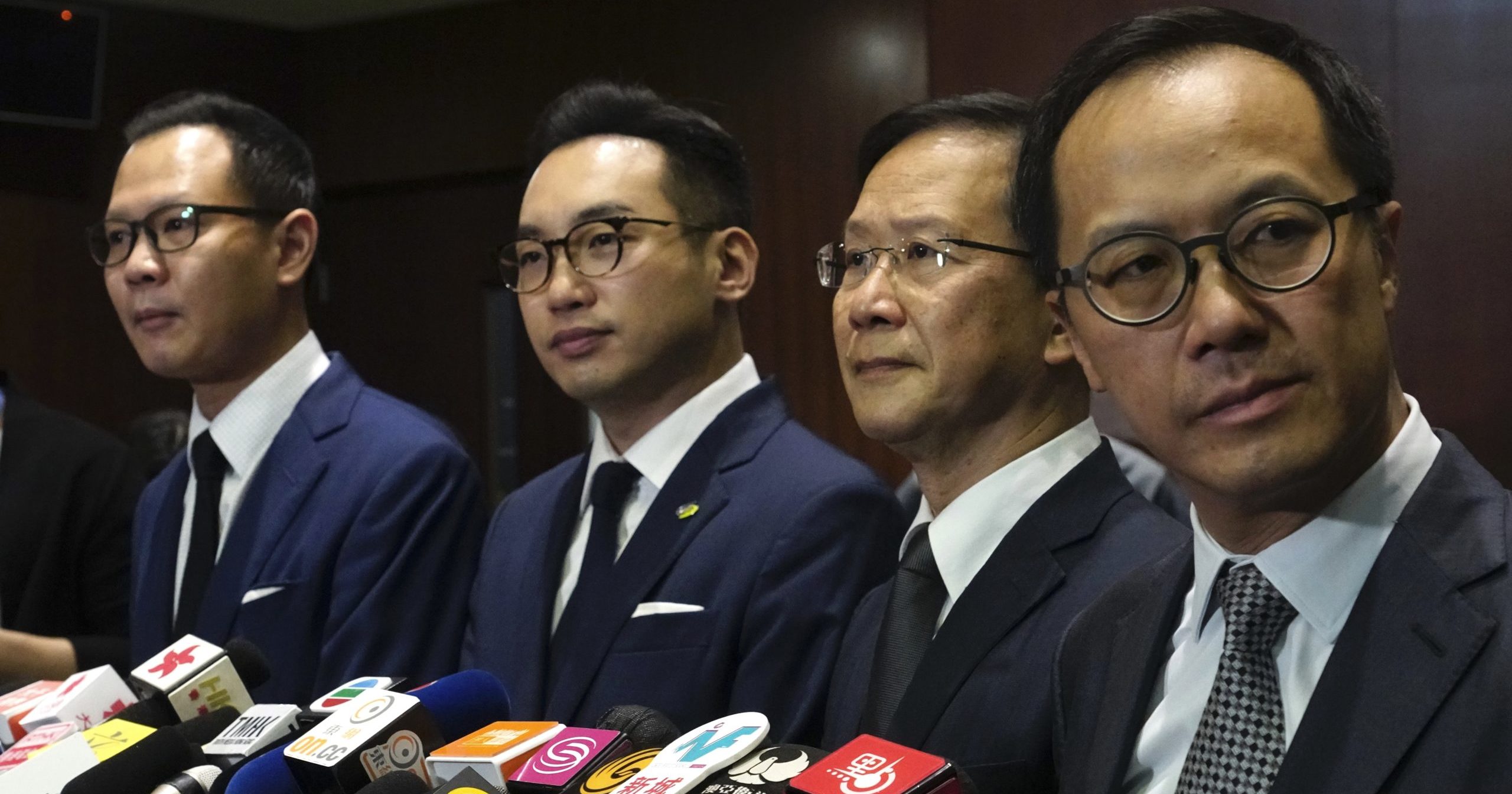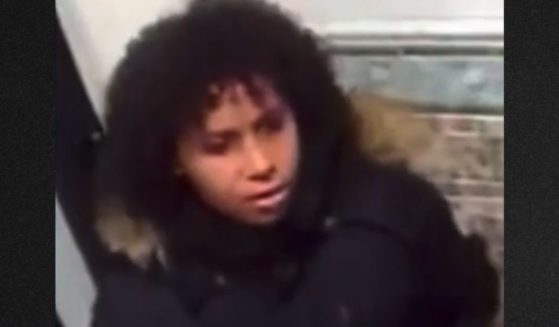
China Sounds 'Death Knell' of Hong Kong's Fight for Freedom, Ousts Pro-Democracy Lawmakers
Hong Kong’s pro-democracy lawmakers announced Wednesday they would resign en masse after four of them were ousted from the Chinese territory’s Legislature in a move one lawmaker said could sound the “death knell” for democracy there.
The resignation of the 15 remaining pro-democracy legislators heightens tensions over the future of Hong Kong, which has long been a bastion of Western-style civil liberties but over which China’s authoritarian government has increasingly tightened its control.
A new national security law imposed by Beijing this year has alarmed the free world.
The mass departure will leave Hong Kong’s Legislature with only pro-Beijing lawmakers, who already made up a majority but can now pass bills favored by Beijing without opposition.
The lawmakers said during a news conference they would submit their letters of resignation on Thursday. The announcement came hours after the Hong Kong government said it was disqualifying the four legislators — Alvin Yeung, Dennis Kwok, Kwok Ka-ki and Kenneth Leung.
The ousters came after China passed a resolution this week saying that any lawmaker who supports Hong Kong’s independence, refuses to acknowledge China’s sovereignty over the city, threatens national security or asks external forces to interfere in the city’s affairs would be disqualified.
“Today we will resign from our positions because our partners, our colleagues have been disqualified by the central government’s ruthless move,” Wu Chi-wai, the leader of the pro-democracy camp, told reporters.
“This is an actual act by Beijing … to sound the death knell of Hong Kong’s democracy fight because they would think that, from now on, anyone they found to be politically incorrect or unpatriotic or are simply not likable to look at, they could just oust you using any means,” lawmaker Claudia Mo told reporters.
Hong Kong leader Carrie Lam defended their removal, saying legislators must act properly and that the city needs a legislative body comprised of patriots.
In recent months, Beijing has increasingly clamped down on Hong Kong despite promising in 1997 to leave the territory’s Western-style institutions intact until 2047 under a “one country, two systems” agreement.
Beijing imposed a strict national security law in June after anti-government protests rocked the city for months last year, and it has used it to crack down on opposition.
In response, the U.S. leveled sanctions on several officials, including Hong Kong’s pro-Beijing leader, and several Western countries have suspended their extradition treaties with the territory.
In Washington, President Donald Trump’s national security adviser, Robert O’Brien, denounced China’s ouster of the lawmakers.
“Beijing’s recent actions disqualifying pro-democracy legislators from Hong Kong’s Legislative Council leave no doubt that the Chinese Communist Party (CCP) has flagrantly violated its international commitments,” O’Brien said
“‘One Country, Two Systems’ is now merely a fig leaf covering for the CCP’s expanding one party dictatorship in Hong Kong.”
Australia said the disqualification of the four lawmakers “seriously undermined” Hong Kong’s democratic processes and institutions.
“Australia calls on authorities to allow the Legislative Council to fulfil its role as the primary forum for popular political expression in Hong Kong, and to remain a key pillar of the rule of law and the “One Country, Two Systems” framework,” Foreign Minister Marise Payne said in a statement.
Britain also said the decision raised further concerns.
“This campaign to harass, stifle and disqualify democratic opposition tarnishes China’s international reputation and undermines Hong Kong’s long-term stability,” Foreign Secretary Dominic Raab said in a statement.
Beijing has rejected the criticism and lashed out at what it calls foreign interference in Chinese politics.
Earlier in the year, the four lawmakers were barred from seeking re-election in a vote originally scheduled for September.
They were disqualified over their calls for foreign governments to impose sanctions on Hong Kong and Beijing.
The government eventually postponed the planned September election by a year, citing the coronavirus pandemic, but the pro-democracy camp criticized the move as an attempt to block them from taking a majority of seats in the Legislature.
Chinese Foreign Ministry spokesperson Wang Wenbin said that the disqualification was necessary to maintain law and order in Hong Kong.
The Western Journal has reviewed this Associated Press story and may have altered it prior to publication to ensure that it meets our editorial standards.
Truth and Accuracy
We are committed to truth and accuracy in all of our journalism. Read our editorial standards.
Advertise with The Western Journal and reach millions of highly engaged readers, while supporting our work. Advertise Today.












